Many of our clients have told us that they want their salespeople to be “self-starters,” operating with high levels of independence and initiative, sometimes even from a home office.
Learn how self-starters are beneficial for business in a multitude of ways.
Benefits of Self-Starters:
- Decrease the amount of time managers have to spend overseeing employee activities
- Improve productivity, naturally
- Step out of the box and fulfill needs that are not within a job description
- Inspire others and serve as role models within a team
- Can be long-term assets to a company
What Makes a Self-Starter?
Self-starters are defined by their actions. They are not merely those who can work well alone. They are also the ones who exhibit critical thinking skills, are motivated internally, recognize and solve problems, streamline workflows and use creativity to support their actions.
Self-starters in sales work well alone and as part of a team, and they take responsibility for their actions.
When hiring a self-starter, recruiters and managers have the difficult job of selecting the true self-starters from the pool of hopefuls, fakers and the unmotivated.
While self-starting is a skill that can be learned, most hiring personnel prefer to hire those who already exhibit many self-starting qualities.
3 Telling Interview Signs That Your Sales Candidate is a Self-Starter
Examine the following elements closely in your candidates to determine their true potentials as self-starters.
1. Does the candidate possess enough experience in both sales and your industry to operate independently?
 Consider the amount of basic sales training and product training you will be able to provide, and then determine whether you need a candidate who is “plug and play” from day one, or whether you can afford to bring on an individual with less know-how.
Consider the amount of basic sales training and product training you will be able to provide, and then determine whether you need a candidate who is “plug and play” from day one, or whether you can afford to bring on an individual with less know-how.
There are benefits and drawbacks to hiring each level of experience.
Someone who fits the bill as a self-starter and who has experience in the industry may have preconceived notions about the way the business should be run.
In this case, a self-starter may try to shake things up with management and cause problems instead of being the golden child that hiring personnel foresaw.
An inexperienced self-starter, on the other hand, may require more time than your team can commit to, learning the ins and outs of your business model.
2. Does the candidate show an adequate level of Drive?
We have discussed how to assess the three elements of Drive with sales testing and a behavioral interview in previous blog posts, but here is a recap to refresh your memory.
Our sales personality test, The DriveTest™, uses a forced-choice question format that enables you to determine whether or not your candidate has the core personality traits necessary for success in sales: Need for Achievement, Competitiveness and Optimism. If this foundation is not set in place to begin with, no amount of sales training will matter.
These traits are vital for sales in both self-starters and non-self-starters alike, but a self-starter who also ranks highly on a sales personality test has a greater likelihood of becoming a rainmaker within your company. He or she will be your go-to salesperson and a dream to work with on a daily basis.
3. Does the candidate’s personality, as revealed in the interview, show a proactive style and comfort operating without direct supervision?
This final question can be answered by including key behavioral questions into your interview process. Here are two of our favorite interview questions that assess independence.
Question: Tell me about a time when it was necessary for you to act without explicit permission.
What to look for: Did the candidate handle the situation proactively on his own? Was the candidate able to act decisively and effectively?
Question: Tell me about a situation at work when you felt you needed help.
What to look for: How difficult was this situation for the candidate? What did the candidate learn? Is the candidate capable of handling similar situations alone going forward?
Do not be afraid to ask for more than one example for each question, and be sure to probe the candidate’s answers carefully to fully flesh out his operational style.
Make sure you are comfortable with the candidate’s ability to operate independently to avoid potentially frustrating surprises down the road.
Listen to and watch the candidate respond to the questions. These are common interview questions and a true self-starter should be comfortable answering them without appearing extremely rehearsed or having to search too long for an instance.
While these questions are a great starting point, many job seekers know that a strong description of motivation is a buzzword with hiring managers.
To further cement your knowledge of a candidate’s self-starting qualifications, be sure to ask references questions about rehire status, responsibilities held and absences.
Assessing Your Current Team for Self-Starters
 The good news is that, unlike the measurements of a sales personality test, which are inherent attributes, an employee’s or candidate’s ability to be a self-starter can be learned.
The good news is that, unlike the measurements of a sales personality test, which are inherent attributes, an employee’s or candidate’s ability to be a self-starter can be learned.
If you have hired someone who wants to be a self-starter, but is tiptoeing around taking on more responsibility, there are a few things managers can do to encourage self-starting behavior.
- Ramp your employee up to taking on more and more responsibility. Let him see that you are comfortable with the quality of work and decision making process on smaller projects.
- Encourage conversations and questioning to facilitate growth and transparency within the team. Sometimes a self-starter in training will need time to learn what work should be clarified and what can be tackled as a solo mission.
- Always ask for ideas and allow different team members to take the lead on various projects. Doing so will get projects off of your plate, while providing you with information about who is progressing as a self-starter.
- Use constructive feedback to encourage a high level of work in your team, and always praise positive attitudes and jobs well done.
Fostering a team of high-Drive self-starters will reflect well on every team member, including the manager. A team that works together seamlessly will overcome challenges and make things happen faster and more efficiently. This is the kind of team that every sales outfit wants to have.
Check out our blog regularly for more information about hiring the right candidate every time.
 Account Login
Account Login






